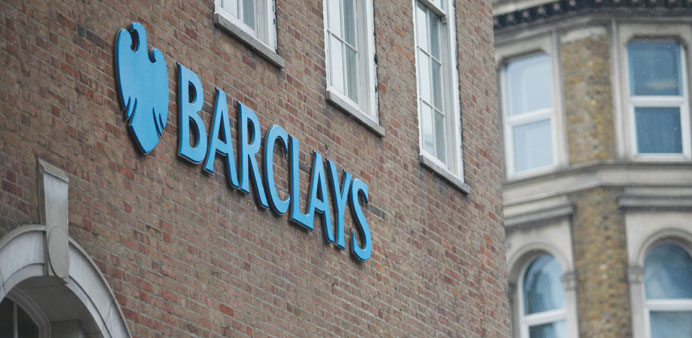Barclays fell into a net loss last year, the British bank said yesterday, hit by huge costs linked to its alleged role in the rigging of foreign exchange markets.
Barclays reported a loss after tax of £174mn ($268mn, €239mn) for 2014 compared with a net profit of £540mn the previous year.
It has set aside £1.25bn “for ongoing investigations and litigation relating to Foreign Exchange”, including £750mn for the final quarter of 2014, the bank said in an earnings statement.
Barclays had announced in October a provision of £500mn for any eventual costs and fines linked to the probes.
The latest announcement from Barclays—which was at the heart also of the 2012 Libor interest-rate rigging scandal—comes as global regulators investigate the alleged rigging of foreign exchange markets around the world.
In Britain, watchdogs the Serious Fraud Office and the Financial Conduct Authority have launched probes into the alleged manipulation of the £3tn-a-day forex market.
“We remain focussed on addressing outstanding conduct issues, including those relating to Foreign Exchange trading,” chief executive Antony Jenkins said in yesterday’s results statement.
“I regard the behaviour at the centre of these investigations as wholly incompatible with our values, and I share the frustration of colleagues and shareholders that matters like these continue to cast a shadow over our business.”
Barclays, which has been plagued by scandals in recent years, set aside another £200mn for compensation costs arising from the mis-selling of payment protection insurance.
The bank added yesterday that adjusted pre-tax profit—after stripping out charges and other exceptional items—rose 12% to £5.5bn in 2014.
Jenkins launched plans in May to shrink Barclays’ investment bank in a radical restructuring which will axe 19,000 jobs across the group by 2016, as he shakes up the scandal-tainted company.
The Libor scandal meanwhile erupted when Barclays was fined £290mn in 2012 by British and US regulators for attempted manipulation of Libor and Euribor interbank rates between 2005 and 2009.
The scandal sparked the resignations of three Barclays senior board members, including ex-chief executive Bob Diamond, who was formerly head of the investment bank unit.

